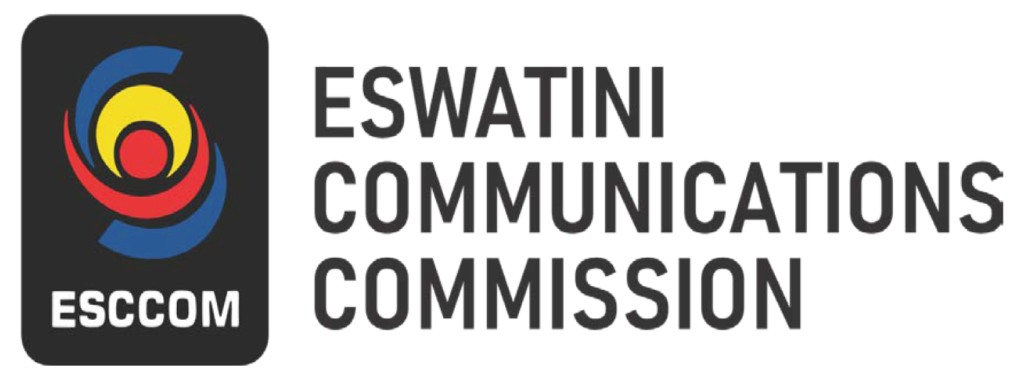Capacity Building
Project Objectives
The Local Content Capacity Building Workshops, supported and funded by the Fund, have a core objective of fostering an improvement of the quality of locally produced content, expanding viewership, and augmenting income generation within the broadcasting sector. Key stakeholders involved in this project include the Eswatini Television Authority, Channel Yemaswati, Independent Producers, and Filmmakers.
Read More...
Project Description
In pursuit of the Universal Access and Service Fund Strategy for 2021 – 2024, the Fund undertook an extensive consultative process involving key stakeholders in the country’s broadcasting services sector. This initiative encompasses a range of specific goals that collectively contribute to the transformation of the broadcasting sector:
Improving Quality and Diversity of Local Content: A key focus is to elevate the quality and diversity of locally produced content, making it more engaging and representative of the local culture and interests.
Upskilling Content Producers: Workshops and programmes are designed to equip content producers with the skills and knowledge necessary to excel in their roles.
Creating Content for Local and Global Audiences: By producing content with broader appeal, the project aims to cater to both local and potential global viewership, thereby expanding the reach and influence of local content.
Systematic Approach to Broadcasting: The initiative seeks to introduce a more structured and strategic approach to broadcasting operations, optimizing efficiency and effectiveness.
Transforming Aspiring Producers: The project aims to nurture aspiring producers into audience-focused creators and entrepreneurs, providing them with the tools they need to succeed in the industry. By understanding and adapting to evolving audience preferences, content creators can craft content that resonates with viewers.
Identifying Sustainable Career Opportunities: The initiative aims to open sustainable career paths within the broadcasting and content production sectors.
Embracing Creativity in the Media Business: Encouraging innovation and creativity is key to staying relevant and appealing to diverse audiences. Effective storytelling is at the heart of captivating content, and this skill is a core focus of the project.
Understanding Audience Psychographics: A deep understanding of the audience’s demographic and psychographic profiles is crucial in tailoring content to their preferences.
Introducing Leadership and Management Principles: The project introduces leadership and management principles from a Gestalt leadership development perspective, ensuring that broadcasting houses have strong leadership and organizational structures.
These objectives are designed to bolster the competitiveness, sustainability, and profitability of broadcasting houses while simultaneously delivering compelling and culturally relevant content to viewers.

Project Objectives
The primary objective of this initiative was to empower educators with specialized training in online teaching methods. This training aimed to bridge the gap and provide equal learning opportunities for all, including children and youth with special needs and disabilities.
Read More...
Project Description
In a bid to foster inclusive and accessible education for children and youth with special needs and disabilities, an initiative has taken shape. The Institute of Distance Education (IDE) and the esteemed Faculty of Science and Engineering at the University of Eswatini (UNESWA) joined hands to offer a Certificate in Online Training for Educators. This initiative sought to equip educators with the necessary tools and knowledge to enhance their teaching methodologies.
The initiative involved twenty dedicated educators, representing a diverse group. This group comprised six (6) SEN (Special Educational Needs) Inspectors, eleven teachers from primary and high schools, including special and inclusive model schools (11), one (1) SEN designer from the National Curriculum Centre, and two (2) ICT Inspectors.
By providing this specialized training, the initiative took a significant step toward creating a more inclusive educational landscape. It empowered educators to better serve children and youth with special needs and disabilities, ensuring that all students have equal opportunities for quality education.

Project Objectives
The primary objective of this project is to equip individuals aged 50 and above, as well as people with disabilities, with essential ICT skills. The project aims to empower these groups by:
Providing Training in Basic Cellphone Operation: The project offers training to help participants understand and operate basic cellphones effectively.
Educating on Fundamental Applications: Participants are educated on essential applications like mobile money platforms and e-government services, which are increasingly becoming an integral to daily life.
Offering Guidance on Online Safety: The project provides guidance on online safety and protection, ensuring that these vulnerable groups can navigate the digital world securely.
Reducing Inequalities and Poverty: The project strives to reduce inequalities and poverty within these demographic groups, enabling them to access opportunities and services made available by digital technologies.
Promoting ICTs in Development: By building capacity among the elderly and people with disabilities, the project contributes to Eswatini’s development agenda by promoting the use of ICTs.
Read More...
Project Description
In today’s digitalized world, access to essential services and communication relies on technology. However, elderly individuals and people with disabilities often face substantial challenges in adapting to this digital transformation. While younger generations are more tech-savvy, these demographic groups have frequently been left behind in the digital landscape.
Eswatini’s adoption of mobile payment systems for social grants distribution has underscored the need to equip the elderly and people with disabilities with basic technology skills and knowledge of digital safety.
This project was implemented in two regions, Shiselweni and Manzini, covering various chiefdoms. Over 14,000 elderly individuals and people with disabilities have benefited from this initiative. In a testament to its commitment to assist these vulnerable groups, the Fund actively supported the Government Social Disbursement Grant initiative by providing 2,925 smartphones for distribution to grant recipients.
Starting in the fiscal year 2021/22, this effort has yielded positive outcomes. Many beneficiaries have used these smartphones to initiate income-generating projects, thereby enhancing the well-being of their families. This empowerment has enabled them to be engaged in utilised digital financial services, promoting self-sufficiency and financial independence.
These collaborative efforts exemplify a commitment to bridging the digital divide and ensuring that every member of society, regardless of age or ability, can actively participate in the digital age. This project undertaken by the UASF represents a significant step toward building an inclusive and digitally empowered Eswatini. By providing essential ICT skills, this project not only empowers elderly and disabled individuals but also contributes to the overall development and prosperity of the nation.
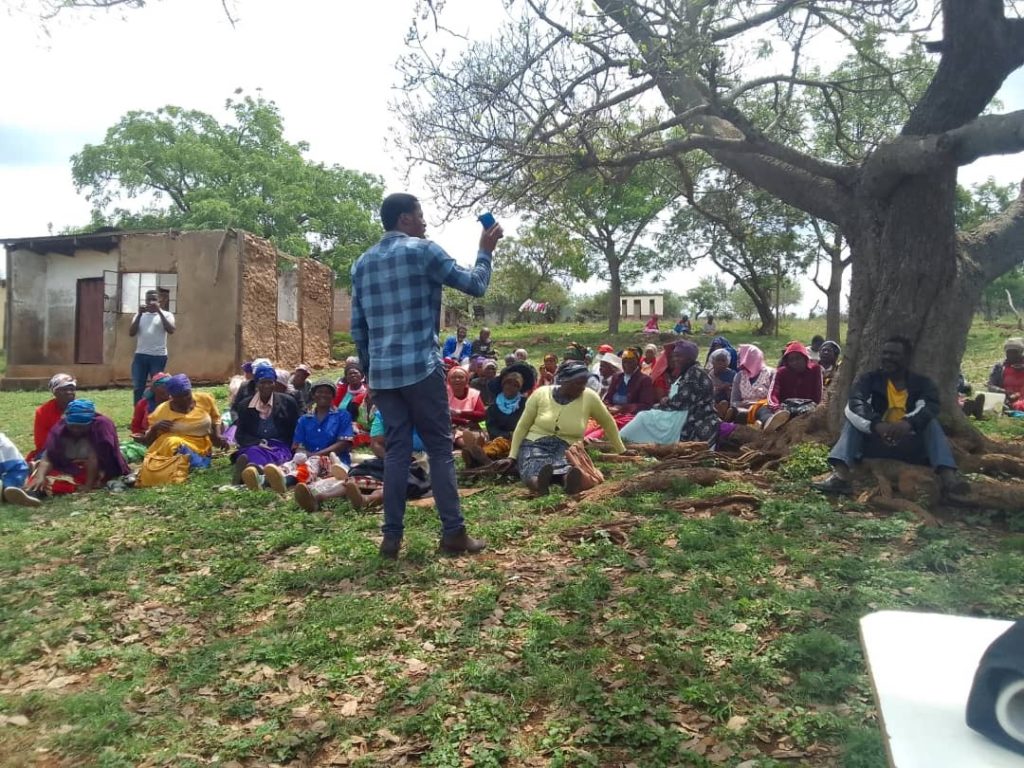
Project Objectives
The United Nations Development Programme (UNDP) and the Small Enterprises Development Company (SEDCO), in partnership with the Eswatini Communications Commission (ESCCOM), are advancing the iHub Project in Piggs Peak. Supported by the Universal Access and Service Fund (UASF), this initiative aims to enhance digital access and support business development for marginalized groups, including youth, women, individuals with disabilities, and MSMEs
Read More...
Project Description
The primary objectives of the iHub Project are to drive economic growth through digital inclusion and entrepreneurship development. The iHub in Piggs Peak is more than just a digital center—it is a platform for economic transformation. By providing accessible ICT training and business development services, it empowers entrepreneurs to leverage digital tools for growth, innovation, and market access. The project enhances digital literacy and business acumen among youth, women, and persons with disabilities, providing networking opportunities and market linkages to expand MSME visibility and competitiveness. Additionally, it bridges the gap between digital access and economic empowerment, ensuring that underserved communities benefit from Eswatini’s digital economy.
Commitment to Sustainable Digital Development
SEDCO and UNDP, in partnership with ESCCOM, are committed to ensuring the long-term financial and technical sustainability of the iHub initiative. By investing in innovative ICT-based business support services, this project is positioning Piggs Peak as a model for digital entrepreneurship and inclusive economic growth.
As the project progresses, UASF remains dedicated to its mission of connecting communities, supporting entrepreneurship, and fostering a digitally inclusive Eswatini. Stay tuned for more updates as we continue to empower businesses and individuals through digital transformation.
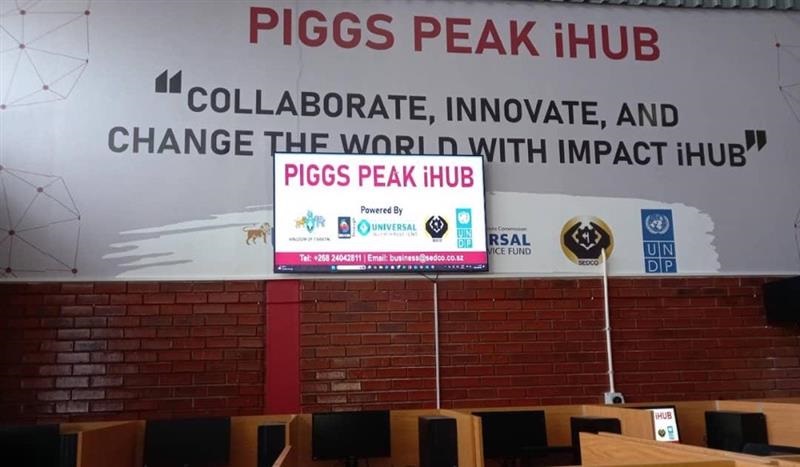
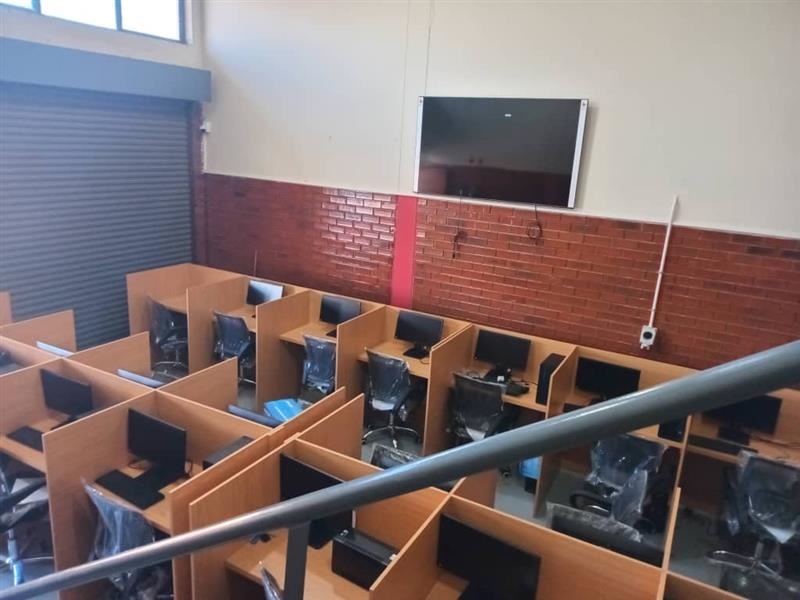
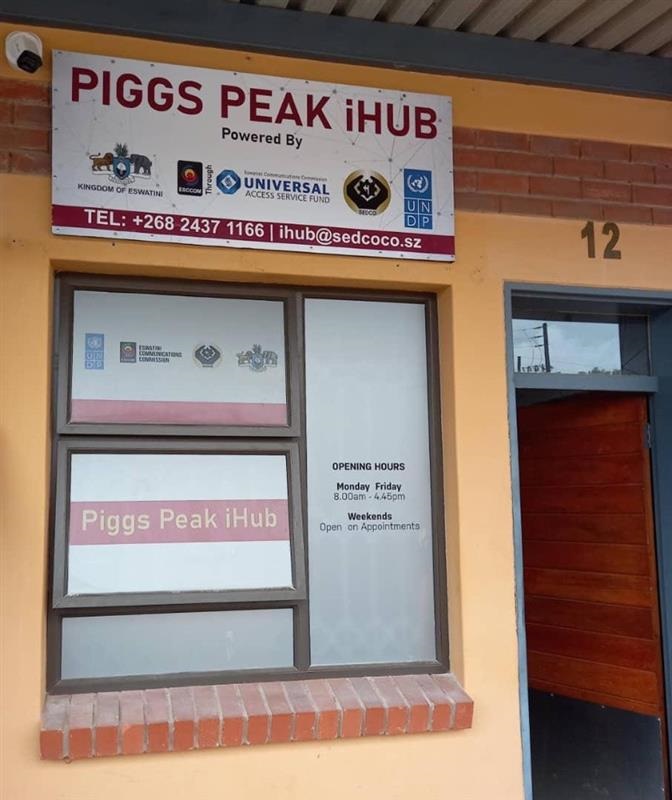
Project Objectives
The Universal Access and Service Fund (UASF), under the Eswatini Communications Commission (ESCCOM), is proud to support the Ezulwini Community Computer Lab, an initiative aimed at advancing digital literacy, entrepreneurship, and youth empowerment. This initiative is a key step toward bridging the digital divide and ensuring that young people, job seekers, entrepreneurs, and students in Ezulwini gain the digital skills necessary to thrive in today’s technology-driven economy.
To establish and operationalize this facility, UASF will provide 20 computers equipped with modern technology, 20 desks and chairs to create a conducive learning environment, and a dedicated tutor for six months to deliver structured digital skills training. These contributions align with UASF’s broader goal of promoting digital inclusion and enhancing access to ICT education across Eswatini.
Read More...
Project Description
To maximize impact, the Ezulwini Community Computer Lab will be integrated into UASF’s Digital Skills Development Program for Youth. This structured training curriculum covers essential foundational to intermediate digital skills, including computer hardware basics, proficiency in Microsoft Office applications, cloud-based collaboration tools, and cybersecurity awareness. By embedding this initiative within an existing digital literacy framework, participants will receive certified training, equipping them with competencies essential for employment, entrepreneurship, and further education.
Commitment to Sustainable Digital Development
To ensure the long-term success and sustainability of the Ezulwini Community Computer Lab, UASF will implement a structured digital skills training curriculum, provide capacity building for the tutor, offer technical and policy support for efficient management, and conduct monitoring and evaluation to measure program impact and improvements.
This collaboration ensures that the Ezulwini Community Computer Lab becomes a lasting and impactful digital learning center, empowering individuals with the tools and knowledge they need to succeed in the digital age. UASF commends the Ezulwini community’s commitment to fostering digital skills development and remains dedicated to working closely with local stakeholders to ensure the success of this initiative.
By expanding access to technology and structured digital training, this partnership will empower individuals, promote entrepreneurship, and contribute to Eswatini’s economic growth. Together, we are building a future where digital literacy is accessible to all.



Empowering the Next Generation for a Digital Future
About the Program
The Youth Digital Skills Program is a national initiative led by the Universal Access and Service Fund (UASF) under the Eswatini Communications Commission (ESCCOM). It aims to equip young people across Eswatini with essential digital skills for learning, work, and entrepreneurship in the modern economy.
As digital transformation accelerates globally, the program ensures that no young person is left behind, particularly those in underserved communities. It provides practical, hands-on training in areas such as digital literacy, online safety, content creation, entrepreneurship, and emerging technologies.
Whether you’re a student, recent graduate, aspiring entrepreneur, or job seeker, this program is your starting point to thrive in the digital era.
Read More...
What You'll learn
Participants gain foundational to intermediate-level skills across key areas:
Participants gain foundational to intermediate-level skills across key areas:
- Basic Digital Literacy
Introduction to computer use, internet navigation, and online communication tools. - Productivity Tools
Training on Microsoft Office, Google Workspace, and collaboration platforms. - Digital Entrepreneurship
Learn how to set up an online business, market products digitally, and manage finances. - Content Creation
Introduction to digital storytelling, video editing, social media, and branding. - Cyber Safety & Online Ethics
How to stay safe online, protect your digital identity, and interact responsibly. - Job-Ready Skills
Learn how to create a digital CV, search for jobs online, and attend virtual interviews.
Why Join ?
- Free access to training and tools
- Opportunities for mentorship
- Pathways to advanced training in ICT related fields
Who Can Apply ?
The program is open to:
- Young people aged 15 – 35 years
- School leavers and graduates
- Youth in rural or peri-urban areas
- Persons with disabilities
- Aspiring digital entrepreneurs and creatives
Training Centres
Training is conducted at community ICT centres and iHubs supported by UASF in collaboration with partners such as:
- SEDCO
- Public Libraries
- MTN Digital Skills Portal
- Ezulwini Community ICT Lab
- Macetjeni Digital Skills Centre (coming soon)
- Online
How to Register
You can register online or in person at your nearest participating centre.
Spaces are limited, and selection is on a rolling basis. We encourage early applications.
Success Stories
“Before joining the Youth Digital Skills Program, I had never touched a computer. Today, I’ve launched my own online store and I’m mentoring others in my community.” — Thandi M., Participant, Piggs Peak iHub
“The digital CV I created through this program landed me a job interview. I now work remotely for a company abroad.” — Sifiso N., Ezulwini ICT Lab Graduate
Contact Us
Have questions? Reach out to our Youth Digital Skills Team: youthskills@esccom.org.sz
Follow us on social media for updates and success stories: Facebook | Twitter | Instagram | LinkedIn
